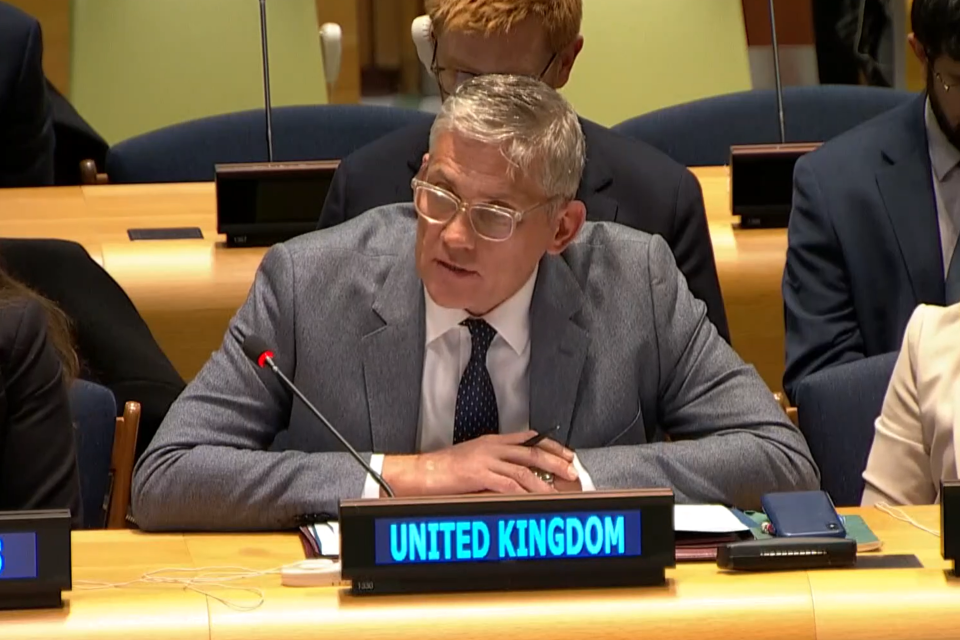Countries affected by conflict and food insecurity are on the frontlines of climate change
Statement by Tom Woodroffe, UK Ambassador to the UN ECOSOC, at the Arria formula meeting on climate and security

Thank you very much, Chair, and like others let me begin by thanking the Permanent Missions of Norway and Kenya for convening us this afternoon, and for the Panellists for their insightful and very action oriented remarks.
A number of people before me have given very obvious illustrative examples of the relationship between climate change and security. I don’t intend to repeat those, but suffice to say that the impacts of climate change present an increasingly unprecedented challenge for the security of people, states, the international community and indeed, as Martin Griffth, the USG for Humanitarian Affairs recently noted at the Security Council, many countries affected by conflict “are quite literally on the front lines of climate change”. So in our view, in the UK’s view, the links are clear and indeed they have been for some time.
The UK was the first to bring climate security to the UN Security Council in 2007. We hosted the first leader level debate in 2019, and more recently, we co-hosted an event at COP27 on anticipating climate crises and taking early action in fragile and conflict-affected states, so we very much welcome the opportunity to co-sponsor this Arria today.
The UK is pleased to have supported the Climate Security Mechanism and also to have provided funding for The Peacebuilding Support Office’s Thematic Review on Climate Security and Peacebuilding, which will provide more analysis on the links between climate impacts and the stability of regions, and it’ll also examine global trends and approaches to sustaining peace through climate security efforts.
But as others have said already today, we need to do better, and we need to better co-ordinate efforts in peacebuilding, climate action and resilience, to build on existing capacities, and to strengthen communities’ ability to mitigate the impacts of climate and security risks. And so for the UK there are perhaps three areas where we believe further work is necessary and is key to achieving this. Indeed I fear I’m about to echo a number of points that other speakers have made perhaps more eloquently than I will. But they are :
-
Strengthening data and evidence gathering, including the systematic monitoring and analysis of conflict risks through a climate lens so as to better understand climate security risks at local and regional level, and this to be accompanied by the development of foresight capacities to enable preparedness.
-
Strengthening of the capacity of the UN system, including staff resourcing and training, to share information and analysis and address the adverse impacts of climate change on peace and security and integrate this more comprehensively across decision making
-
And finally, by developing a cohesive, cross-cutting, and robust strategy that considers climate-related risks, and peace and security issues, in a holistic way and drives a more coherent response to climate-related security risks from the UN system
And if there’s time I would very much welcome hearing the Panel’s reflections on these suggestions.
Thank you very much.